TALE will also design and implement a novel infrastructure focusing on the four main phases of the project, as shown in Figure 1.

- Design: The design methodology will involve a detailed survey on systems and languages focusing on property graphs, identifying bottlenecks of existing solutions and setting the path for the following work in this project. The survey will focus on existing languages and relevant approaches for schema discovery, identifying also applicable approaches from semantic graphs. The survey will also include currently running EU projects in the area and a thorough analysis of the results of past projects. PG processing infrastructures will be examined and experiences from past projects will be directly transferred to TALE.
- Development: The development phase will focus on individual areas, i.e. PG schema discovery focusing on extracting a structure that can be used as a schema for PGs, how to exploit those schemas for establishing declarative mappings between multiple PGs leading eventually to PG Data integration, and finally on schema-based data partitioning for efficient query answering over big PG.
- Evaluation Phase: During this phase, the individual components will be internally tested and evaluated. The results of this phase will drive the final version of the software all components will be integrated. The final version will be evaluated holistically evaluating how multiple PGs can be integrated exploiting schema information and enabling efficient query answering on top. The outcome will also influence the business/exploitation plan especially shedding light in the added value of the developed technologies.
- Exploitation: This phase spans throughout the project and after completion continues via the sustainability plan and the release of services in an open-source repository. Also, project results will be shared with the industry and through existing channels (e.g. Oracle Labs) and will also be communicated through a COST action in relevant fields co-organized by FORTH submitted in parallel with this proposal.

